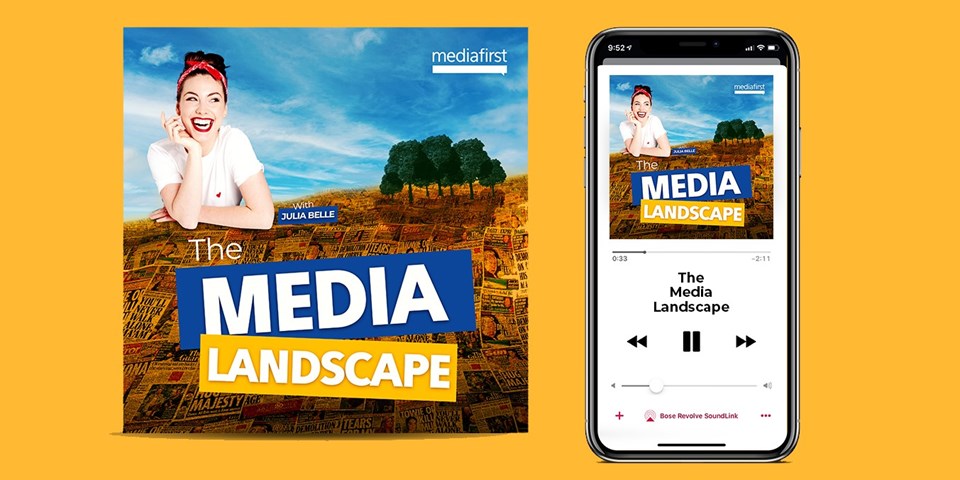Apologies. We’ve all seen plenty of them lately.
Prime Minister Boris Johnson has said sorry for attending a party during lockdown.
Novak Djokovic, the world’s number one tennis player, apologised for a mistake on his Australian immigration paperwork and for breaking isolation for a photoshoot when he had covid.
Another government apology saw Downing Street apologise to the Queen for parties on the eve of Prince Philip’s funeral.
And leading energy company OVO said sorry after issuing energy-saving advice described as “insensitive” and “clown-like”.
Everyone, it seems, is apologising. But few are doing it well.
And that is a problem when it comes to crisis media management.
Let’s start by looking at Mr Johnson’s apology.
After a series of allegations and a period where the only response was to hide behind the Sue Gray investigation, the Prime Minister finally addressed the issue in the House of Commons.
“I want to apologise”, he began as Prime Minister’s Questions found itself in the unusual position of being ‘must see’ television.
“I know that millions of people across this country have made extraordinary sacrifices over the last 18 months.
“I know the anguish they have been through - unable to mourn their relatives, unable to live their lives as they want or to do the things they love.”
Although ‘wanting to apologise’ is not the same as apologising, there was, at least, a clear recognition of the upset and offence many people felt.
But there was a ‘but’ coming, and Mr Johnson quickly moved to explanations, excuses and attempts to downplay what had happened.
He said: “No 10 is a big department with a garden as an extension of the office which has been in constant use because of the role of fresh air in stopping the virus.
“When I went into that garden just after six on May 20 2020, to thank groups of staff before going back into my office 25 minutes later to continue working, I believed implicitly that this was a work event.”
The idea he believed the ‘bring your own booze’ gathering in the Downing Steet garden was a “work event” that he attended for 25 minutes before returning to work – and that the event may “technically” have fallen within the guidance – was met with widespread ridicule.
While he may have said he offered his “heartfelt” apologies, it felt more like an evasive non-apology - carefully worded and constructed with heavy legal influence. It didn’t even include the word ‘sorry’.
And that has done nothing to quell the storm surrounding the government, with the pressure continuing to mount.
Yet that hasn’t stopped Mr Johnson from sticking to the same sorry-not-sorry approach. Speaking to Sky News on Tuesday, he said: "I repeat my deep apology for mistakes that may have been made on my watch."
He also apologised in the same interview for “misjudgements”, which sounds distinctly like an attempt to play down the significance of what had happened.
And he doubled-down on the idea he didn’t know it was a party, saying “nobody told me and nobody said that this was something that was against the rules.”
"I carry full responsibility for what took place, but nobody said to me that this was an event that is against the rules."
— Sky News (@SkyNews) January 18, 2022
Boris Johnson recalls what he remembers about an alleged party in the Downing Street garden during lockdown.
Latest: https://t.co/lE3sSg2vbt pic.twitter.com/k50uWKeYmD
When the media has not been reporting on the latest government party allegations, much of its focus has been on Novak Djokovic.
The tennis star suffered a rare defeat in his bid to play at the Australian Open. Not only did he find that his status did not make him immune from the same rules as everyone else, but he also endured a PR disaster.
It is hard to see how his reputation can be rebuilt without an apology. And it needs to be better than the recent attempts we have seen from him.

This week, Julia Belle discusses Prince Andrew's bungling crisis comms, why M&S renamed 'Midget Gems', and the art of saying sorry. And she is joined by Victoria Smith, fresh from reporting from outside Downing Street, for a chat about 'partygate'
When he admitted giving an interview and a photoshoot despite having recorded a positive covid test, he described it as an “error of judgement”.
"I felt obliged to go ahead and conduct the L'Equipe interview as I didn't want to let the journalist down, but did ensure I socially distanced and wore a mask except when my photograph was being taken," he said.
“When I went home after the interview to isolate for the required period, on reflection, this was an error of judgement and I accept that I should have rescheduled this commitment."
There was also an apology for an error on his immigration paperwork, but the tennis star made it clear it was not his mistake, throwing his agent under the bus.
"My agent sincerely apologises for the administrative mistake in ticking the incorrect box about my previous travel before coming to Australia,” he said.
"This was a human error and certainly not deliberate. We are living in challenging times in a global pandemic and sometimes these mistakes can occur."
Let’s compare these apologies to another that recently caught our attention.
OVO Energy found itself at the centre of negative headlines and a social media storm after issuing ‘keep warm’ advice to its customers that included doing star jumps, holding hula-hoop competitions and eating ginger.

The Media Team Academy is a 12-month learning and development programme that combines media and communications masterclasses with personal development sessions. Academy members also have access to our online training courses, covering presentations, crisis comms, smartphone video and business writing skills.
While it may not be as serious as ‘partygate’ or the Djokovic drama, it was still a crisis media management incident for the power company.
And it showed how apologies should be made.
On social media, it said the tips were “embarrassingly unhelpful and poorly judged.”
And the boss Stephen Fitzpatrick gave interviews where he said sorry and actually appeared to mean it.
“It was really embarrassing,” he told Channel 4 News. “It was a stupid thing for us to have written. It is something I regret. I am very sorry that we sent it. It is a big company and somebody had a bad day.
“We deserve to be getting a lot of trouble from this.”
On BBC Breakfast, he added: “It was a ridiculous piece of advice. It should never have been written. It should never have been sent, and we should have caught it.
“We found out about half an hour after it had been sent out. We retracted it. We made a big apology.
“And clearly, for all the customers that we know are worried about paying their energy bills, this type of message is deeply unhelpful and upsetting, and I apologise. It was a bad day, we made a mistake, and we have tried to put it right as fast as possible.”
"It was a bad day, we made a mistake"
— BBC Breakfast (@BBCBreakfast) January 12, 2022
On #BBCBreakfast the boss of OVO Energy Stephen Fitzpatrick apologies to customers who were told to 'cuddle a pet or loved one' if they can't afford to put the heating on.https://t.co/ECCQaTFdMk pic.twitter.com/uqWYWBdiCL
Since those apologies, focus has shifted away from OVO.
So, what can we learn from these apologies, and how should brands, politicians and sports stars apologise when they are in crisis mode?
Speed
If you are going to apologise you need to move quickly. The faster you respond, the more control you will have over a story.
OVO acted quickly and apologised almost immediately. Mr Johnson’s apology, on the other hand, came after weeks of revelations. Even the latest party allegations were allowed to build before they were finally addressed last week.
Regret
When you listen to Mr Fitzpatrick, you get the impression he genuinely regrets what happened.
He sounds sincere, adopts a human tone and uses the same language as his customers.
And consequently, people believe he was sorry.
With both the Prime Minister and Mr Djokovic, the impression is more that they regret the situation they find themselves in rather than their actions.
The public tends to be pretty reasonable. They understand mistakes happen. But they expect people and brands to sound like they mean it when they say sorry.
Excuses
There is a temptation to include explanations in apologies.
But great care is needed as there is a thin line between explanation and excuses. And when an apology feels like it contains excuses, it detracts from the accountability.
Mr Johnson’s apology, in particular, contains many excuses. He believed it was a work event. He was only there for 25-minutes. No 10 is a big department. Its garden is in constant use because of the role fresh air plays in stopping the virus. It is an extensive list.
And this week, he added to it by saying no one told him it was against the rules - the rules he brought in.
These claims were branded “ludicrous” and “ridiculous” by Sky News political editor Beth Rigby when she interviewed the Prime Minister on Tuesday.
'You are just taking the mickey out of the British people by suggesting it was a work event'.
— Sky News (@SkyNews) January 18, 2022
[PM's head down]
'You know how silly that sounds don't you?'
"I repeat my deep apology for mistakes that may've been made on my watch", answers Boris Johnson.https://t.co/iOm40vn1kt pic.twitter.com/naPJvuuRAC
Not only have the excuses detracted from the apology, but they also managed to give the story fresh impetus.
Blame
Blaming others is similar to making excuses.
No one cares who in Djokovic’s support team failed to fill in the immigration papers correctly. They just know there was an error.
But when he blames his agent, he is saying, “this isn’t my fault.”
An effective apology takes full ownership and responsibility for what has gone wrong.
Mr Fitzpatrick didn’t write OVO’s energy-saving advice, but he owned the mistake.
What other advice is there about saying sorry?
Well, on our crisis communication training courses, we stress the importance of action and reassurance in apologies.
When something has gone wrong, and an organisation finds itself in a crisis media management incident, customers want to know what action is being taken to resolve the issue and prevent it from happening again.
Even in the initial stages, it is important to outline what is being done to deal with the crisis. You need to show it is all-hands-on-deck.
Similarly, people want to feel reassured what has happened is a one-off and can’t be repeated. They want to know lessons will be learnt.
The other issue to consider is whether to apologise at all. That may sound at odds with what we have already said in this blog.
But many, many apologies are being made, driven, at least partly, by the rise of social media.
While there are obviously times where this is the right thing to do, there are other occasions where it feels like a default option deployed too quickly to stop the furious tapping of the keyboard warriors.
And, if we’ve learnt anything from the past few weeks, it is that the public can tell the difference between a genuine apology and fake contrition.
Media First are media and communications training specialists with over 35 years of experience. We have a team of trainers, each with decades of experience working as journalists, presenters, communications coaches and media trainers.
Click here to find out more about our practical crisis communication and media training.


